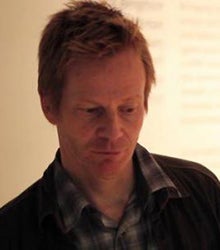Professor Ives’ creative practice operates within a nexus of overlapping cultural categories, including art, technology, and ecology. The tools central to his work, digital media and the computer, are themselves representative of a hybrid discourse. They intersect with and have implications for almost every sector of our society. He uses technology never an end in itself, never an unexamined tool, but a chance to reflect, examine, and reveal aesthetic and cultural substructures. In other words, the tool is also always IDEA; the implications, complex and intractable. Across a diverse range of work, including media installation, kinetic video sculpture, sculptural objects, and interactive screen-based work, he explores how our digital tools are not only changing our capabilities, but also our worldview.
Clearly the nearly insatiable demand for progress that has shaped our technology driven culture has had a devastating impact on the environment. Ives’ projects increasingly address ecological issues, not only in regard to technologically driven questions, but also in regard to broader questions about our broader sense of our place in the natural world. His project Nocturne was chosen for exhibit at the International Symposium of Electronic Art 2006, and later exhibited at the Microwave International New Media festival in Hong Kong (2008). The project focuses specifically on the nocturnal lives of opossums, mice and kit foxes, animals that have found successful niches in sub/urban landscapes. The project asked viewers to re-envision urban spaces in terms of animal habitat, reconsidering what we think of as nature and wilderness.
Current projects include an event-based work addressing Salmon habitat in Oregon rivers; A robotic video camera project addressing location/dislocation and our constructed sense of place in the landscape; and a project that focuses on the world of ants to contemplate the notion of The Gloryland.

